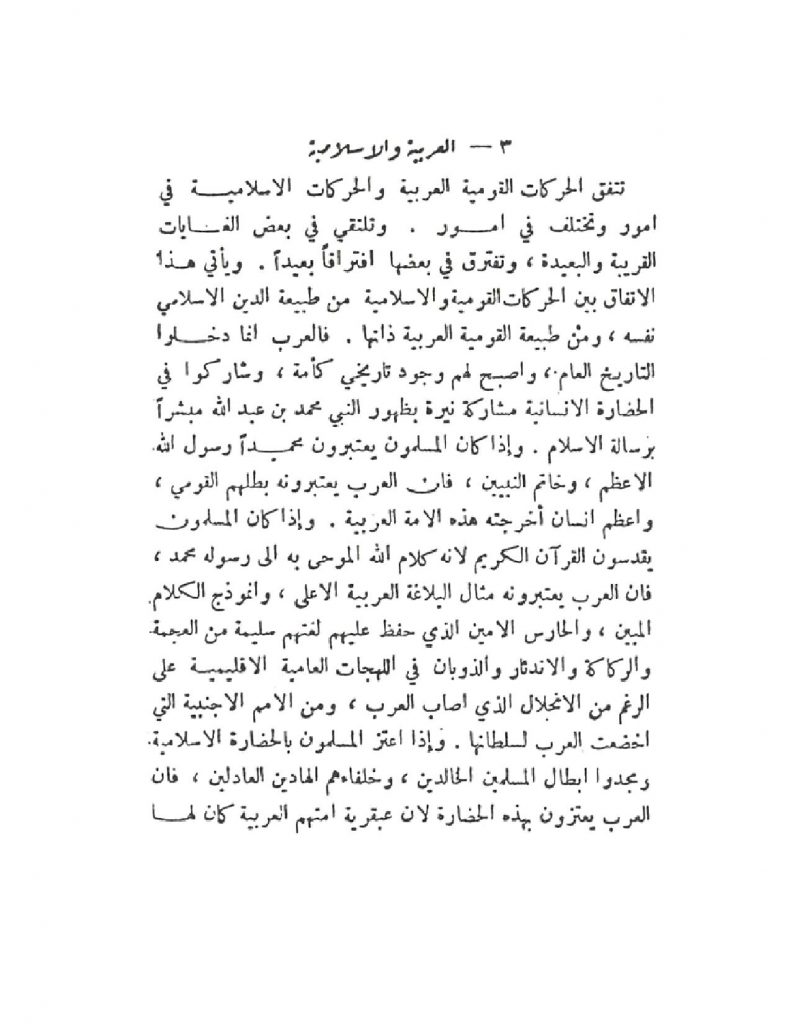
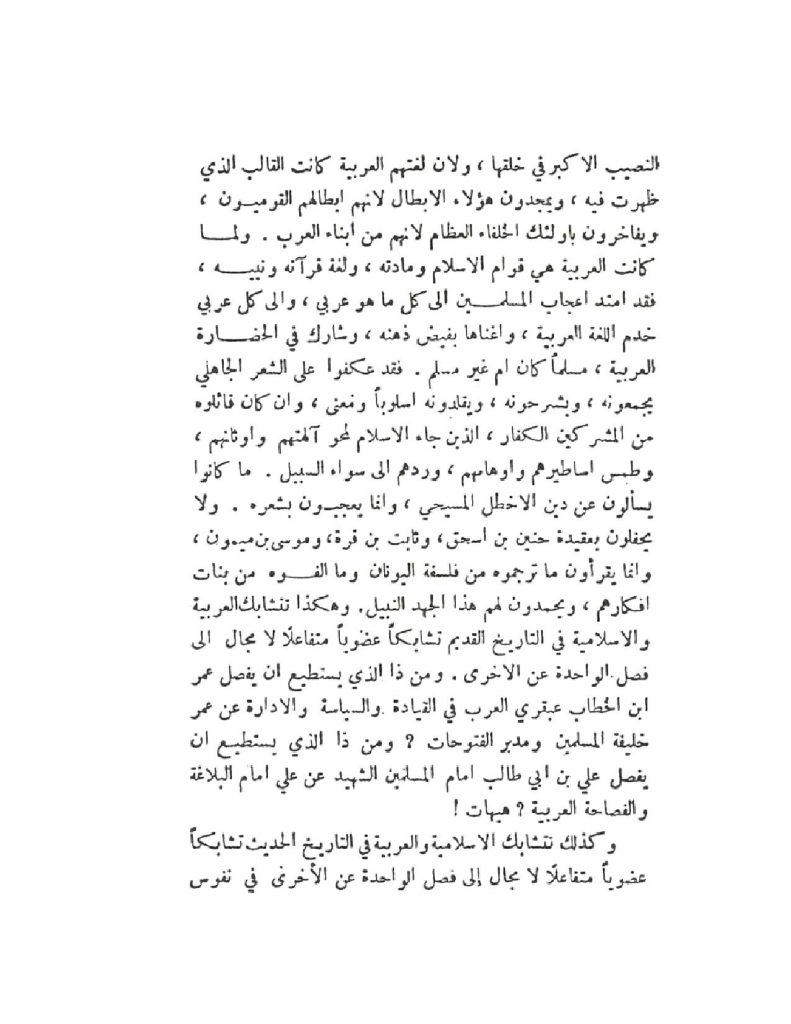
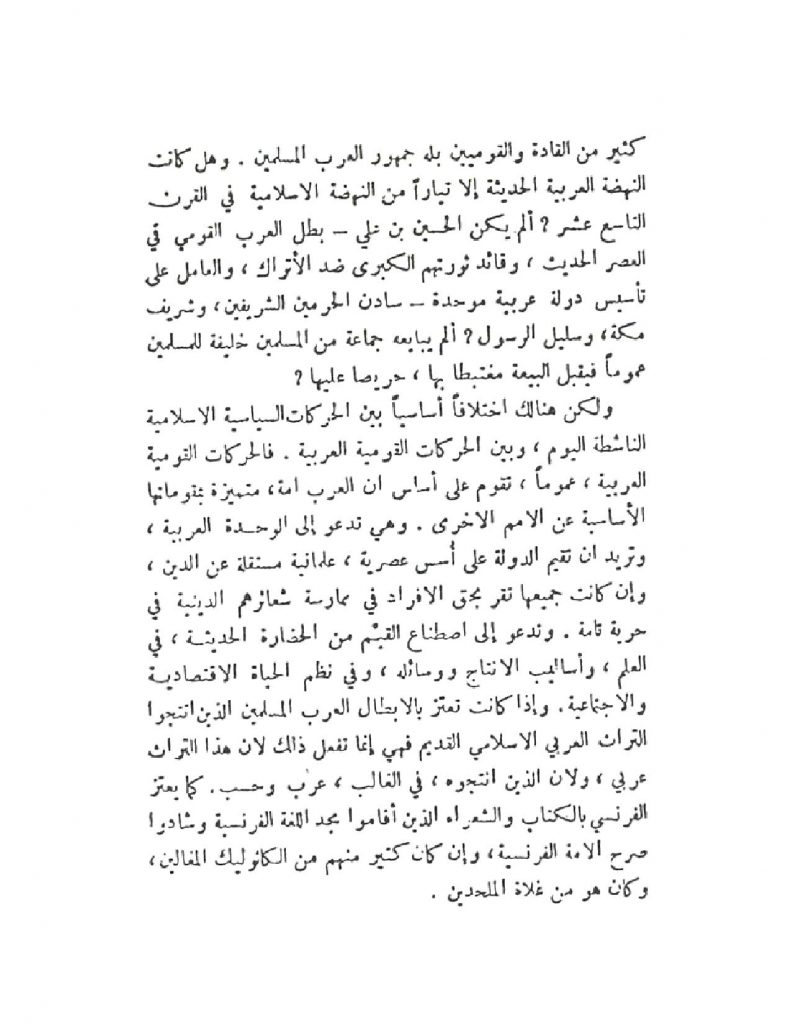
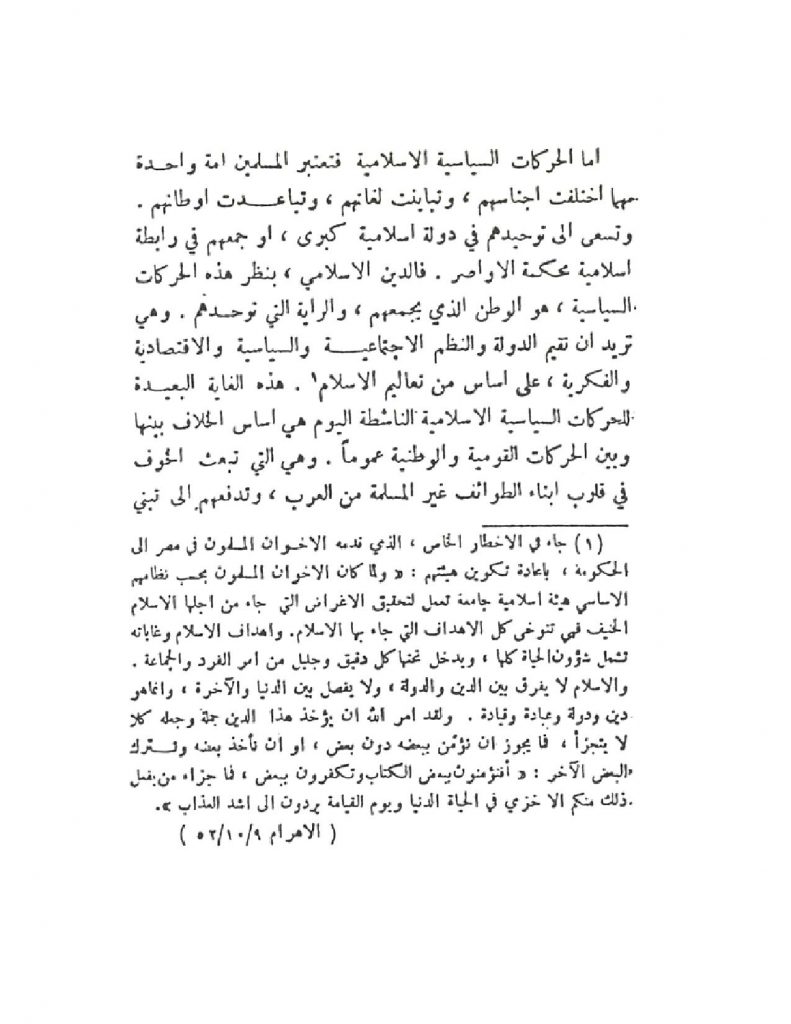
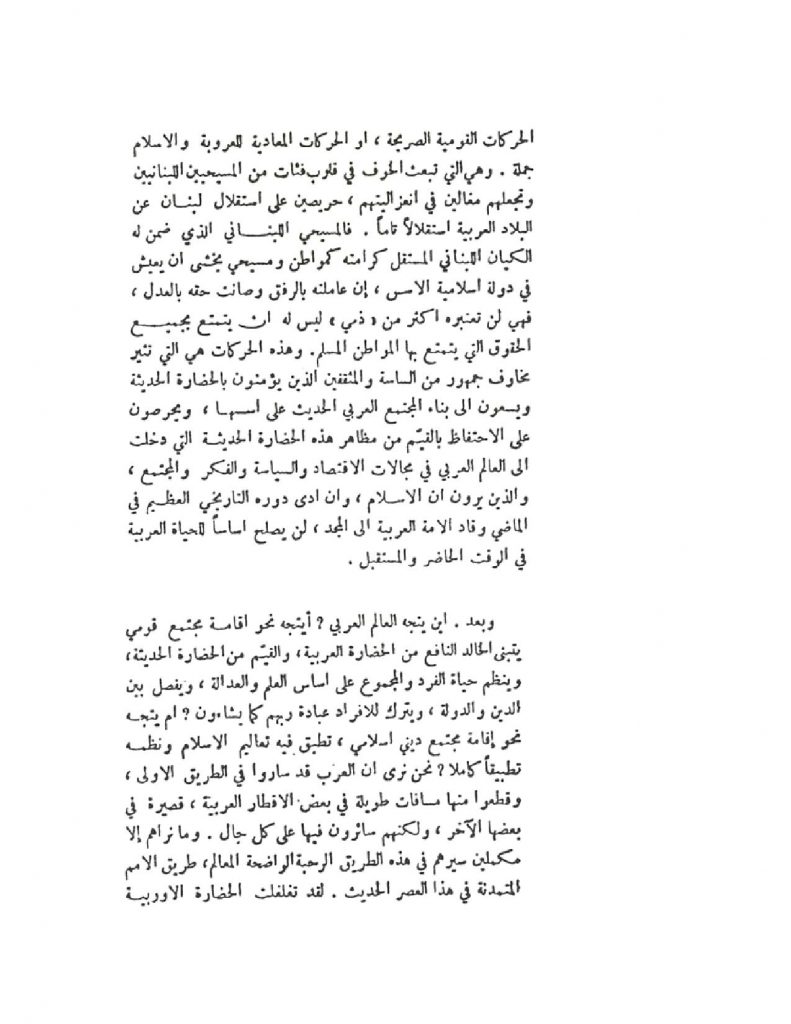
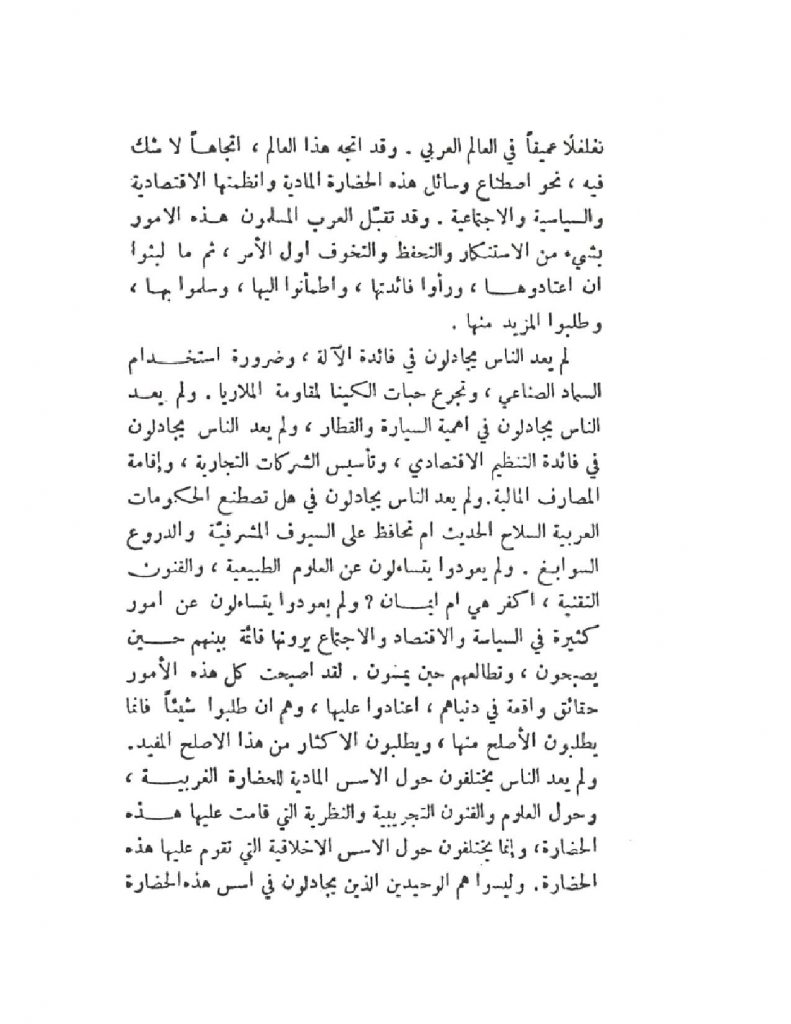
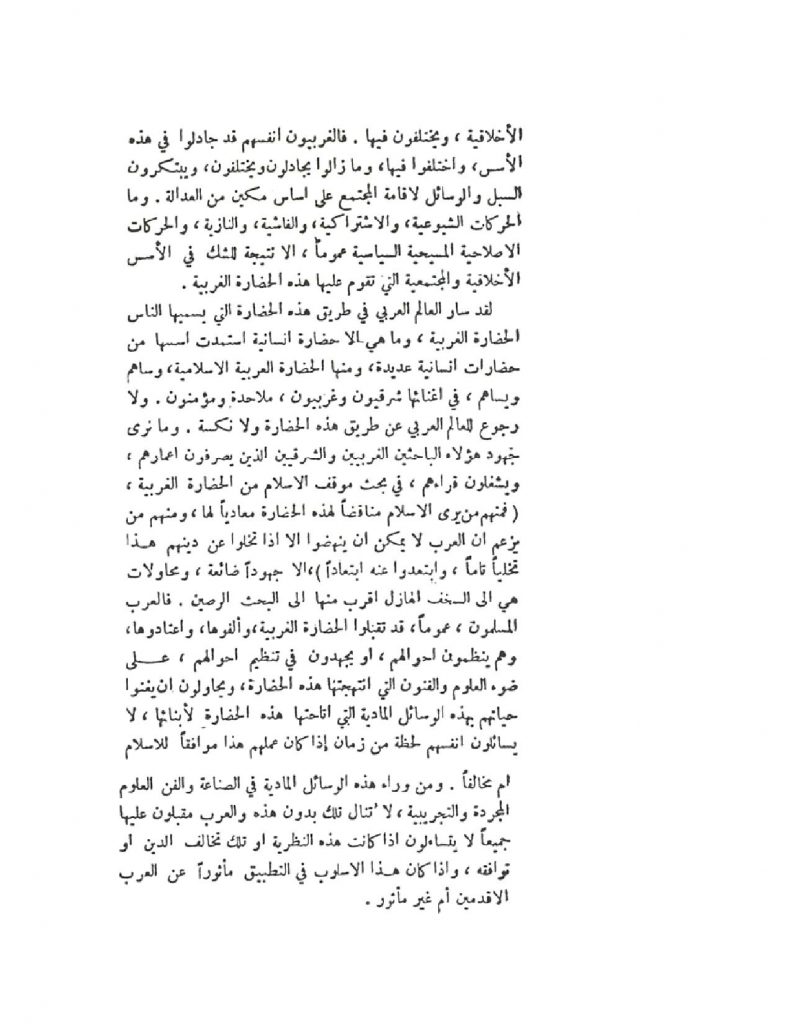
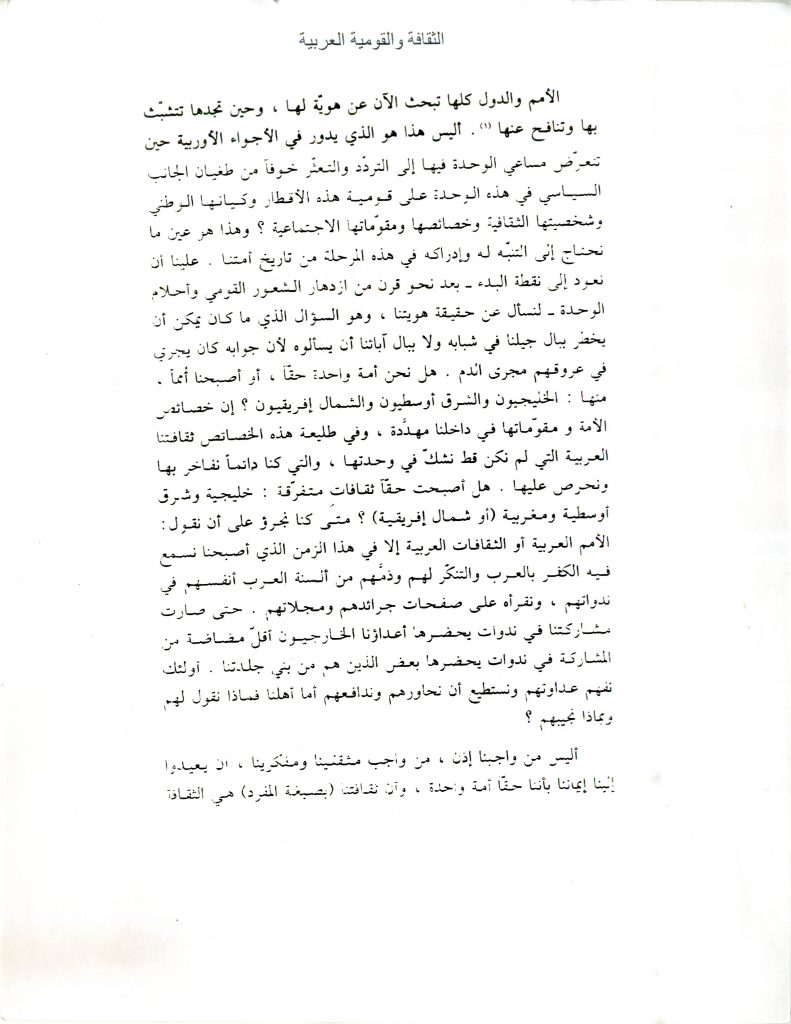
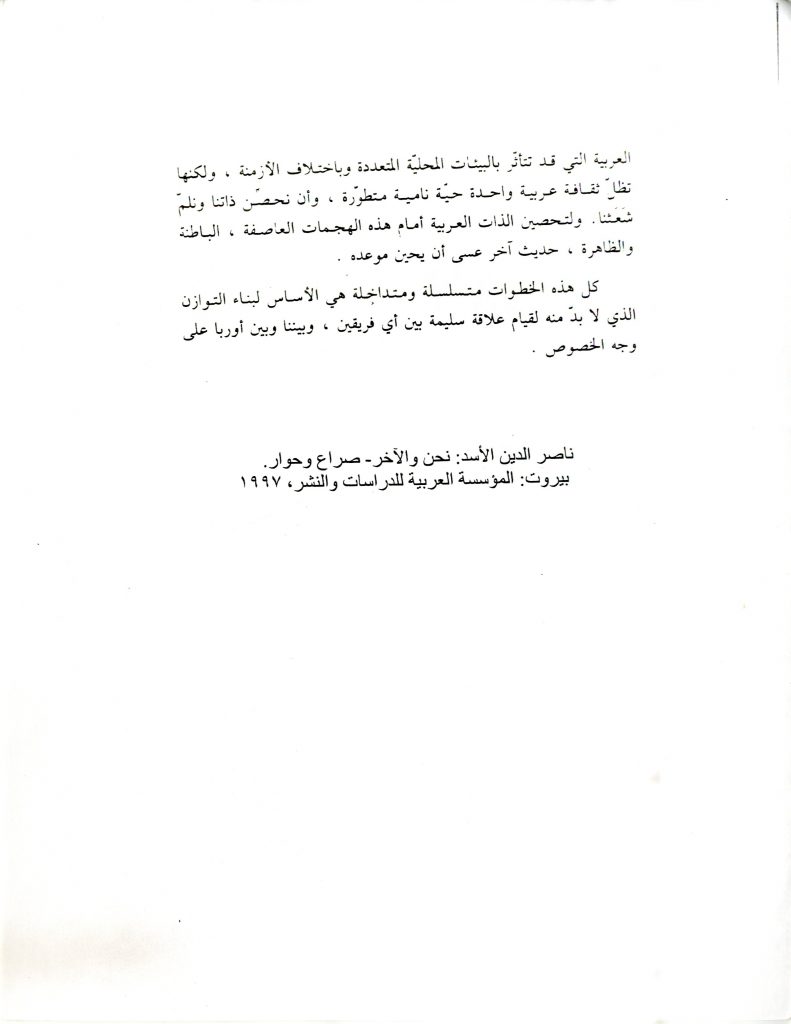
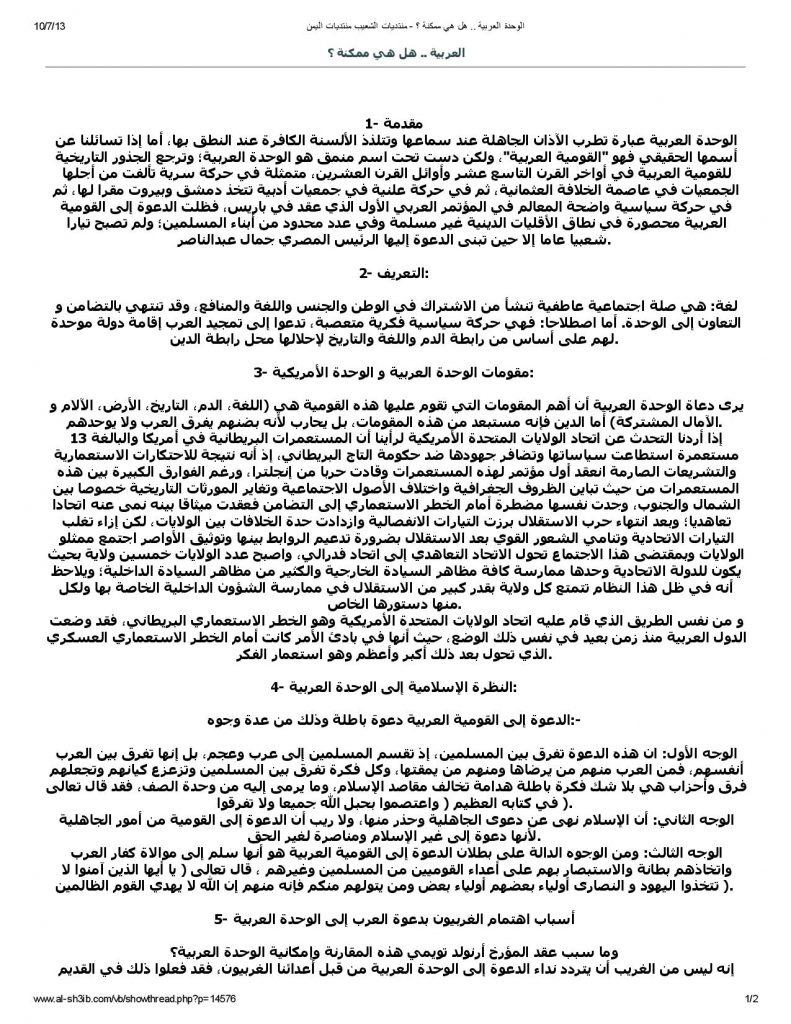
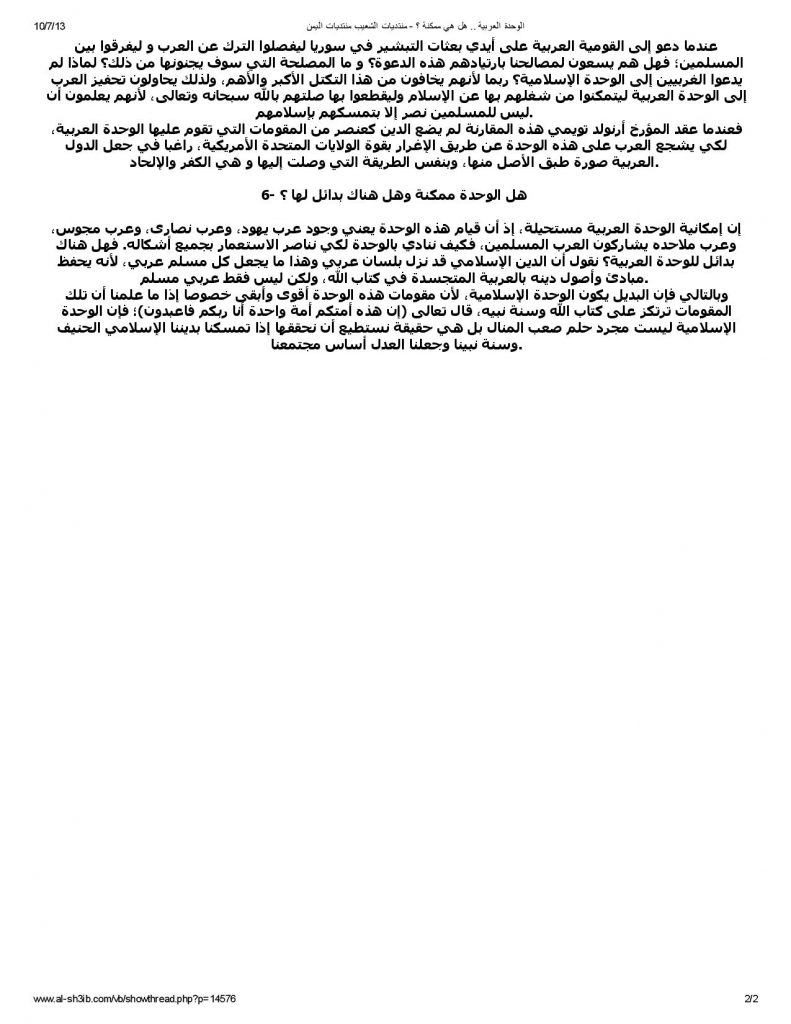
GRAMMAR NOTE 1: وظائف المصدر المؤّول ‘Functions of a Nominalized Clause’
A nominalized clause is a clause headed in most cases by الموصولات الحرفية ‘subordinators’ or حروف مصدرية ‘nominalizers’, and which, again in most cases, can be replaced by a مصدر صريح ‘a verbal noun’, with no change in meaning.
The most common nominalizers are: أنْ، أنّ، (ل)كي، لَو التي للتَمَنّي، ما المصدرية
Most of these are familiar except perhaps لَو‘ التي للتَمَنّي لَو’ which expresses ‘wish, desire’, which is used after verbs like تمَنّى/ ودّ ‘to wish, desire’. To these subordinators we might add the أ we saw in Lesson 3 Lexical Note 1, in… سواءٌ أ which is called همزة التسوية ‘the hamza of equal options’.
The functions of these clauses in a sentence are:
1. subject of an equational (nominal) sentence:
عليك انْ تسالم من يسالمك. It is incumbent on you to make your peace with whoever wants to be at peace with you.
أن نستسلم معناه ان نُهزم. For us to surrender is to accept defeat.
This is also the case where the predicate is من التبعيضية (see Lesson 3 Grammar Note 1)
2. predicate of an equational sentence:
المهم أنْ لا نثقّل انفسنا بالهموم. What is important is not be burden ourselves with worry.
الحقيقة/الواقع أنّ هذه اللغة لم تعد مستخدَمة. The truth/fact of the matter is that this language in no more used.
3. subject of an active or passive verb:
لا يجوز لك أن تفعل ذلك. You must not (lit. it is not allowed for you) to do that.
لم يسبق لي ان غادرت البيت مساء. I have never left the house in the evening.
خـُيـِّـِل اليها انّه غريب في هذه الديار. It appeared to her that he was a stranger in these parts.
أتيح له أنْ يزور القدس مرارا .ً He was given the opportunity to visit Jerusalem frequently.
4. direct object of a transitive verb or verb with two objects:
اريد ان أعود من حيث أتيت I want to go back to where I came from.
نسيتُ ان احمل بطاقتي الشخصيّة I forgot to carry my identity card with me.
نسيت انّك من المها جرين I forgot she was one of the immigrants.
نصحتها أنْ لا تشارك أحدا I advised her not to partner with anyone.
علـّموهم أنّ الكرامة أهمّ شيء في الحياة They taught them that honor is the most important thing in life.
5. in constructions with كاد، أوشك، عسى :
يكاد ان يصبح الرئيس دكتاتوراً He is about to become a dictator.
اوشكن (على) ان يحقّقن جميعَ اهدافِهنّ. They (f.p.) are about to reach all their goals.
وجئت كما ترى في الصباح الباكِرِ عسى أن الحق بالخطاب
As you see, I came early morning so perchance I might trace the letter.
6. مضاف اليه
a. after certain nouns:
بشرط ان تقبل شروطنا سنقبل عرضك We will accept your offer on condition that you accept ours.
على/ب اعتبار انّه فرد من افراد العائلة سنذهب لزيارته
We will go to visit him in view of the fact that he is a member of the family.
7. object of a verb-preposition idiom
اعجز عن ان افعل شيئاً I am incapable of doing anything.
انا واثق بانك صادق وأمين I am confident that you are truthful and trustworthy.
8. after prepositionals such as بعد انْ، قبل انْ، دون أنْ، الى ان، and adverbial expressions used as subordinators such as غيرَ انّ، إلاّ انّ، رغمَ انّ، سوى انّ
رأيناها بعد ان عادت من رحلتها. We saw her after she returned from her trip.
لم أشعر بشيء سوى انّه مرّ بسرعة. We didn’t sense anything except that it went by fast.
على انّ النزوح الى بلدٍ ما لا يعني الاقامة الدائمة فيه
However, immigrating into a country does not permanent residence in it.
لم يقل شيئا ً سوى أنه غادر بلاده قبل الحرب بسنة He said nothing save that he had left his country a year before the war.
LEXICAL NOTE . /أيّةٌ /أيٌّ
ايّ has a variety of meanings ranging from ‘which? what kind of?’ to ‘whoever, whosoever’, to ‘any (one, thing), every (one, thing)’, and others. It has a masculine and a feminine forms which are commonly inflected for case It is used as an interrogative, a nominal determiner, an exclamatory or rhetorical question word, a conditional , a vocative, and in a number of expressions.
1. ايّ as an interrogative occurs as مضاف in an اضافة or as a single unit . It usually heads the sentence, but may also head a sentence following a preposition
1.1 . as مضاف in an اضافة ; it may have for a مضاف اليه
(i) an indefinite singular noun:
ايّ لهجة يدرس؟ Which dialect does he study?
ايّةُ مدينة هذه؟ What city is this?
من ايِّ بلد انت؟ What country are you from?
(ii). an indefinite dual or plural noun:
ايّة امور اخلاقية تعتبر هامّة؟ Which moral matters are considered important?
الى أيِّ فريقين تنحاز؟ To which two teams do you lean?
أيّة سبلٍ قادتك الى هذا المكان؟ Which roads led you to this place?
(iii). a definite dual or plural noun or pronoun:
ايّ المرشّحَيْن تُفضّل؟ Which of the two candidates do you prefer?
ايّ المدرّسين أحبّ اليك؟ Which (one) of the teachers do you like most?
تحدّثت عن هاتين المرأ تين. أيُّهما أسرع الى خدمة الآخرين؟
You talked about these two women. Which one is the quickest to help others?
An alternate construction in this case would be to use:ايّ + the indefinite noun in the singular followed by مِنْ and the definite dual or plural noun; with human nouns, أيّ واحد/ واحد(ة) can be used :
ايّ واحد/مرشّح من المرشّحَيْن تُفضّل؟ Which one/candidate of the two candidates do you prefer?
ايّ واحد/مدرّس من المدرّسين أحبّ اليك؟ Which one/ of the teachers …
تحدّثت عن هاتين المرأ تين. أيٌّ واحدة/امرأة منهما أسرع الى خدمة المواطنين؟
You talked about these two women. Which one/of the two women is the quickest to help …
Note the distinction between the indefinite and the definite dual or plural constructions:
الى ايّ فريقين/الى ايّ الفريقين to which two teams/to which one of the two teams
أيّةُ سبلٍ/ ايّة السبلِ which roads/ which one of the roads
For the singular, the difference between ايّ الفريق and ايّ فريق would be: which team and which part group/part within the team.
1.2 as a single unit
As such it is nunated (with تنوين) and followed by a prepositional phrase with partitive مِن .
ايٌّ من تلك الافلام أعحبك؟ Which of those movies did you like?
الى ايٍّ من الاحزاب تنتمي الاكثرية؟ To which party does the majority belong?
ايّاً من مؤلّفات هذا الأديب قرأتم؟ Which of this litterateur did you read?
Properties of the interrogative ايُّ
a. Its functions:
(i) It occurs at the beginning of the question, either as subject or governed by a preposition
(ii) Like other interrogatives, questions with ايّ can be embedded in sentences as indirect questions:
سألتني عن أيّ قطار يتّجه الى القاهرة ومن ايِّ بلد انا. She asked me which train goes to Cairo and where I was from.
(iii) ايُّ may occur as مضاف اليه
محاضرة ايّ من الضيوف اعجبتك اكثر من غيرها؟ا Of all the guests, whose lecture did you like most?
b. Its gender and case:
Gender agreement is a rule which is not strictly observed today; the m.s. is the default form, which can be used in all instances. As can be seen from the examples above, it is assigned the case marker of its syntactic function in the sentence.
2. ايُّ as a nominal determiner with the meaning of ‘any’
Like the interrogative, it occurs in an اضافة or as an single unit, is mostly used in the m. form, and takes on the appropriate case in its sentence.
- In an اضافة it makes the indefinite noun that follows it more explicitly indefinite. This is rendered still more explicit by having the اضافة followed by a prepositional phrase consisting of partitive من and the plural of the مضاف اليه:
كأيّ انسان like any human being
في اي مكان وتحت اية ظروف in any place and under any circumstances
لأي سبب من الاسباب for any reason whatsoever
باية حال من الأحوال in whatever condition (lit. in any condition of conditions
Once more, it is important to distinguish between
في ايّ جامعتين و ايّ الجامعتين in any two universities/ in any of the two universities
- 2.2 as a single nominal determiner, ايُّ is nunated (used with تنوين ) followed by a prepositional phrase with partitive من and a dual or plural noun or pronoun
لم يحضر ايٌ من الاساتذة. None of the professors came.
لم يحدث هذا في ايٍّ من البلدين. This did not happen in either of the two countries
اودّ الاتصال بأيّ من الاطراف على حدة. I would like to be in touch with any of the parties separately.
ايُّ as a nominal determiner serves various syntactic functions, just like any noun, such as subject, object of a preposition, etc.:
من أصعب الامور ان نحدّد أركان أيِّ قوميّة It is most difficult to delineate the basic elements of ‘nationality’
لا يصلح اىٌّ منها لكي … None of them would be appropriate to …
لا تحدَّد بايِّ عامل It is not delineated by any one factor
يعتمد نجاح ايِّ انتاج على … The success of any product depends on …
هل تناول ايّاً من اركان القومية في حديثه؟ Did he in his speech deal with any of the bases of nationalism?
3. ايّ as a noun with exclamatory connotations of astonishment and wonder in rhetorical questions:
أيّةُ سبلٍ قادتك الى هذا المكان What kind of roads could have led you here!
ايّةُ مدينة هذه! What a city this/that is!
أيّة فائدة تُرجى من مثل هذه المفاوضات What benefit could be expected from such negotiations!
قادتها الظروف الى نعيم، وأيِّ نعيم Circumstances led her to bliss, and what bliss!
This ايّ with exclamatory connotations of astonishment and wonder is also used in an اضافة whose مضاف اليه is مفعول مطلق , and is thus in the accusative; it often occurs in the form ايَّما :
سررت بنجاحه ايَّ سرور I rejoiced over his success “and how! (lit. with what joy”
أُعجب بها أيَّما إعجاب He admired her greatly “and what admiration!”
أَوْرَقت أيَّما إيراق It leaved greatly (“and what a leaving!”)
In these and the examples above, ايّ takes the appropriate case ending that the syntactic rules require. With respect to gender agreement, there is more flexibility, and the masculine form is more generally used.
4. أيُّ as a vocative noun مُنادى أيُّها/أيَّتُها ‘O!’
ايَها الرجلُ لا تنس ما لك وما عليك. O man, do not forget what is yours and what you owe.
أيَّتُها الإمْرأتان لا تنسيا ما لكما وما عليكما. You two ladies, do not forget …
أيُّها المستمعون الكرام Dear honored listeners,
As such, the form of أيُّ is always with a ضمّة, but unlike other uses أيُّ here agrees in gender with the noun that follows, which is always definite and in the nominative.
أيُّها/أيَّتُها may be preceded by the particle يا with no difference in meaning.
For review. here are some notes on the particle يا . The vocative يا , as you will recall from Elementary Modern Standard Arabic and other books you studied, can occur as a single. Here are some of its properties:
- The noun after يا , which does not take the article but refers to a specific addressee, is in the nominative:
لا تتأخّرْ يا استاذُ سليم Mr. Salim, please don’t be late.
يا مَن لا يعرف طريقه، إحْذر! O you who do not know your way, take care.
يا يوسُفُ! O Joseph!
- When the noun is مضاف in an اضافة , it is put in the accusative:
يا سيادةَ الرئيس Your Excellency!
يا صاحبَ السموِّ الملكيّ Your Royal Highness!
يا أبا عليّ! Abaa ‘Ali!
يا سائقي وسائقاتِ الحافلاتِ! Men and Women Drivers!
يا أصدقاءَنا الكرام Dear friends!
يا ربَّنا العظيم O Great God!
The إضافة: may be حقيقية , as in the examples above. or غير حقيقية as in:
يا قليلِي الايمان O ye of little faith!
يا زارعَ اليقينِ والظنونِ O Thou who plants certainty and doubt!
يا مكتوفَ اليدينِ!ِ O you with tied hands!
- When the word after يا is a verbal, like اسم فاعل etc. with verbal force, where the addressee is non-specific, i.e. it does not refer to a specific group or person ,it is put in the accusative, or, as expected, in the genitive if the verbal require a preposition) :
يا راكبا جملاً You who are riding a camel!
يا راغباً في الزواج، لا تكن متسرِّعاً You who seek marriage, don’t be hasty!
Note that the object جبلاً in يا راكبا جملاً is in the accusative also. Such constructions are rare. The alternative in الإضافة , يا راكبَ جمَلٍ is more common today.
(iii).With the name of God, يا اللهُ is used, but a much more widespread term of address on formal occasions is اللَّهُمَّ :
اللَّهُمَّ ارحمنا God, have mercy on us!
اللَّهُمَّ ارحمْني وأنِرْ عقْلي وألِنْ قلبيَ القاسي! God, have mercy on me, enlighten my mind, and soften my remorseless heart.
5. Expressions with ايّ :
ايّ occurs in a number of high frequency expressions:
(i) أيّاً كان(ت) ‘no matter who, whoever he/she is, whatever’,
(ii) ايُّ مَن كان ‘whoever/whosoever he may be’
لا احترم احداً يقول ذلك أيّاً كان/ ايُّ مَن كان. I don’t respect any one who says that, whosoever he might be
(iii) أيّاً يكـُن
لن اتحدّث اليه أيّاً تكُن الظزوف. I will never talk to him, no matter what (lit. whatever the conditions be).
(iv) على ايِّ حال ‘ by all means, in any case, at any rate’
هو على ايّ حال خير من غيره. He, in any case, is better than others.
(v) ايُّ واحدٍ any one
LEXICAL NOTE 2 جميع وبعض ومُعْظَم‘all’ , ‘some’, and ‘most/the majority’
جميع
The word جميع is in many ways like كلّ. It appears in several forms and constructions:
1. It occurs as مضاف followed by a definite plural noun, or by the indefinite relative pronoun مَن , where it is declined according to its function in the sentence:
حضر جميع ُ المدعُوّين الناشطين All the active members attended.
اجتمعت بجميعٍ الزائراتِ المصريّات اللواتي حضرن I met with all the Egyptian lady visitors who attended.
قابلت جميعَ من كان في الدار I met all those who were in the house.
جميع الزائراتِ المصريّات قبلن الدعوة All the Egyptian visitors (f.p.) accepted the invitation.
As can be seen, agreement of the elements that follow, whether an attributive or predicative with المضاف اليه in person, gender, number and case, as appropriate.
2. It occurs as a definite independent masculine noun, الجميع , with the meaning “everyone”,“all” and is declined according to its function:
أخذ الجميعُ نصيبه من ثروتها Every one took his share of her wealth.
الجميعُ أخذ نصيبه من ثروتها Every one took his share of her wealth.
الجميعُ أخذوا نصيبهم من ثروتها All took their share of her wealth
With الجميع as subject in first position, the verb may be singular or plural
3. It, followed by the appropriate pronoun, occurs in apposition to a preceding definite plural noun or plural pronoun and agrees with that head noun in case.
المدعُوّون جميعُهم حضر All the guests attended (lit. the guests, all of them
اهتمَّ بالأديباتِ المصريّاتِ جميعِهن He took care of all the Egyptian guests (f.)
ثم دعاهن جميعَهنّ للعشاء Then he invited them all to dinner
الأديباتُ المصريّات ُ جميعُهنّ أحضرن امتعتهنّ All the Egyptian writers (f.) brought their luggage.
In this construction, a synonym to جميع is بأسْرِ
الأديباتُ المصريّات ُ جميعُهنّ (او بأسْرِهنّ) أحضرن امتعتهنّ
4. Like كلّ , جميع , when followed by a pronoun, may occur as an independent word but only in subject position (whether as مبتدأ or فاعل):
جميعُهنّ حضرن الاجتماع All of them (f.) attended the meeting.
but not,
*رأيت جميعهنّ في المؤتمر
5. It occurs as an indeclinable indefinite word in the accusative, جميعاً , which follows a noun or pronoun:
حضرتم جميعاً بلا استثناء.
عانقتكم جميعاً حال وصولِه.ا She embraced you all as soon as she arrived.
نحن/المدعوّون/نحن المدعوّين جميعاً من أصل عربيّ. All of us/All the guests/ All of us, guests, are of Arab extraction.
بعض
We have run into the noun بعض a number of times in our reading. Here is first an overview of its uses, including forms and uses we may not have seen, followed by agreement rules related to its use:
Uses of بعض
1. It occurs as head or governing noun in an إضافة :
1.1 Most commonly it is followed by a plural noun or pronoun with the meaning ‘some, some of’; it is masculine singular:
أظهر بعضُ الناس/ بعضُهم اهتماماً بالموضوع.
إذا ببعض السيّدات يغادر الغرفة.
إنّ بعضَ الطلاب مشغول بالامتحان.
إذا ببعضهنّ يغادر الغرفة.
إنّ بعضَهم مشغول بالامتحان.
قصائده متنوّعة: بعضُها جيّد وبعضُها أقلّ جَودةً.
1.2 In a collective context, بعض followed by a dual or plural pronoun indicates reciprocity and translates ‘each other’:
اجتمعنَ وأخذنَ يسألنَ بعضَهُنّ
صديقان لا يبتعدان عن بعضِهما
مشَينا ممسكيْن أيديَ بعضِنا
1.3 It can be followed by a singular definite concrete or abstract noun or by a pronoun to mean ‘some, a certain amount of’:
امضينا معه بعضَ الوقت.
شعرت ببعضِ الضَجَر والاشْمِئزاز.
1.4 Also, it may be followed in an إضافة by the relative pronouns مَن or ما to mean ‘some of’,
اليكم بعضُ ما قالته الصحف اليوم.
احتفينا ببعضِ من شاهدنا اليوم في الحفل.
1.5 بعض is also used in an اضافة whose مضاف اليه is مفعول مطلق , and is thus in the accusative :
هو ملتزم بوعده بعض الالتزام وليس كلّ الالتزا م
2. It occurs as an independent definite noun البعض , which bears the collective meaning of ‘some’ as in ‘some people’:
يقول البعضُ إنّ الأوضاع قد تحسنّنت، إلاّ انّ البعضَ الآخَرَ ينفي ذلك.
بالنسبة للبعضِ فإنّ المشكلة لا حلَّ لها
3. It occurs as an independent indefinite noun بعضٌ
3.1 Here it is followed by a prepositional phrase with partitive مِن to mean ‘some of’:
زارنا بعضٌ من أقرب المقرّبين الينا.
أطلعني على بعضٍ من مؤلّفاته.
قرأوا بعضاً مما كتبته الصحف عن الموضوع.
3.2 Or it occurs alone to express reciprocity and means ‘each other’:
هذا الكلام يبعدنا عن بعضٍ.
تقابلوا بالصدفة وتحدّثوا مع بعضٍ.
4. It occurs in pairs as successive duplicate occurrences of بعض and convey the meaning of reciprocity, ‘each other’.
The most common occurrences are:
4.1 بعض+ ضمير بعضاً
Here the pronoun is plural, with the reciprocating parties (i.e., the subject of the verb) for antecedent; the first بعض takes the pronoun of its antecedent and is in apposition to it, and the second is in the accusative: بعضاً .
عانقن بعضُهُنّ بعضاً. They embraced each other.
أخذوا يهنّئون بعضُهم بعضاً ً. They began to congratulate each other.
In addition بعض may in this case serve as subject, with the pronoun attached to indicating the reciprocating parties:
عانق بعضُهُنّ بعضا.
4.2 بعضٍ + بعض+ ضمير حرف جرّ
Here the appropriate preposition حرف جرّ is used with the second بعض if and as required by the verb;
يكيد رجالُ السياسة بعضُهم ببعضٍ. Politicians lay snares one to another.
يُسِئنَ بعضُهُنَّ الى بعضٍ. They hurt one another.
Here again the first بعض may serve as subject, with the pronoun attached to it indicating the reciprocating parties:
. يُسِيءُ/تُسيءُ بعضُهُنَّ الى بعضٍ
4.3 بعض+ ضمير البعض
Here, as in 1), the pronoun ضمير is plural, with the reciprocating parties (i.e. the subject of the verb) for antecedent:
عانقن بعضُهُنّ البعضَ They embraced each other.
أخذوا يهنّئون بعضُهم البعضَ
Once more, the appropriate preposition/ حرف جرّ is used if and as required by the verb and in this case usually precedes the first بعض , but may also precede the second:
يكيد رجال السياسة ببعضِهم البعضُ
يُسِئنَ الى بعضِهِنَّ البعضُ
Following this overview, here are some agreement rules related to the use of بعض :
1. Gender and number.
The noun بعض is masculine singular, so words agreeing with it are naturally masculine singular as in many of the examples above. In the case of the independent البعض , they may be plural, agreeing with the plural idea associated with it, as in:
يقول البعضُ إنّ أوضاعهم المالية قد تحسنّنت ويضيف البعض الآخر ان كل اوضاعهم قد ساءت.
Some say that their conditions have improved, but others add saying that their conditions have all become worse.
However, in cases where it is in an اضافة construction, agreement is commonly with the مضاف اليه . Thus an acceptable alterative to pertinent examples above would be:
إذا ببعض السيّدات يغادر الغرفة. or إذا ببعض السيّدات يغادرن الغرفة
إنّ بعضَ الطلاب مشغول بالامتحان. or إنّ بعضَ الطلاب مشغولون بالامتحان
إذا ببعضهنّ يغادر الغرفة. or إذا ببعضهنّ يغادرنَ الغرفة
إنّ بعضَهم مشغول بالامتحان. or إنّ بعضَهم مشغولون بالامتحان
قصائده متنوّعة: بعضُها جيّد وبعضُها أقلّ جودةً or قصائده متنوّعة: بعضُها جيّدة وبعضُها أقلّ جَودة
إنّ بعضَ المصريين لا يزال يعقد حفلات الزار. or إنّ بعضَ المصريين لا يزالون يعقدون حفلات الزار
2. Case
In most examples above the assignment of case is straightforward: as a noun, بعض is assigned the case of a noun in that position.
Questions may arise in dual occurrences of بعض when the second occurrence is definite (as in 4.3) .
عانقن بعضُهُنّ البعضَ
أخذوا يهنّئون بعضُهم البعضَ
يكيد رجال السياسة ببعضِهم البعض
يُسِئنَ الى بعضِهِنَّ البعض
In the first two examples the first بعض , as a noun in apposition, takes the case of the noun or pronoun it follows, and the second بعض is in the accusative as the object of the verb.
In the last two examples the first بعض follows a preposition and is in the genitive; but there is no consensus as to the case of the second بعض . To some , these examples could be read as:
يكيد رجال السياسة بعضِهم بالبعضِ
يُسِئنَ بعضِهِنَّ الى البعضِ
and hence those sentences can be read as:
يكيد رجال السياسة ببعضِهم البعضِ
يُسِئنَ الى بعضِهِنَّ البعضِ
Others stop short of assigning case to the second بعض on the basis of lack of direct evidence.
مُعْظَم
Uses of مُعْظَم
It only occurs as مضاف , and is followed by a definite singular or plural noun, a pronoun, or by a relative clause, where it is declined according to its function in the sentence:
سكنت في هذا الحيّ معظمَ حياتها. She lived in this neighborhood most of her life.
كان متديّناّ كمعظمِ أقاربه. He is religious like most of his relatives.
معظمُ اللواتي حضرن سوريّات من حلب. Most of those who attended are Syrian ladies from Aleppo.
قابلت معظم الذين كانوا في الاجتماع. I met most of those who were at the meeting .
انّ معظمَ ما يكتبه يتعلّق بالسياسة. Most of what he writes has to do with politics.
معظمُ الزائراتِ المصريّات قبلن الدعوة All the Egyptian visitors (f.p.) accepted the invitation.
هذه رسالتي وقد اتممت كتابة معظمِها امس. This is my thesis; I completed most of it yesterday.
Agreement of مُعْظَم
As can be seen from the examples above, in most cases agreement of the elements that follow the إضافة , whether attributive or predicative, is with المضاف اليه in person, gender, number and case, as appropriate.
However, as a masculine singular noun, agreement may be in the masculine singular:
معظمهم أخذ نصيبه من ثروتها. Most of them took their share of her wealth.
معظم الحاضرين شارك في المناقشة Most of those present participated in the discussion
